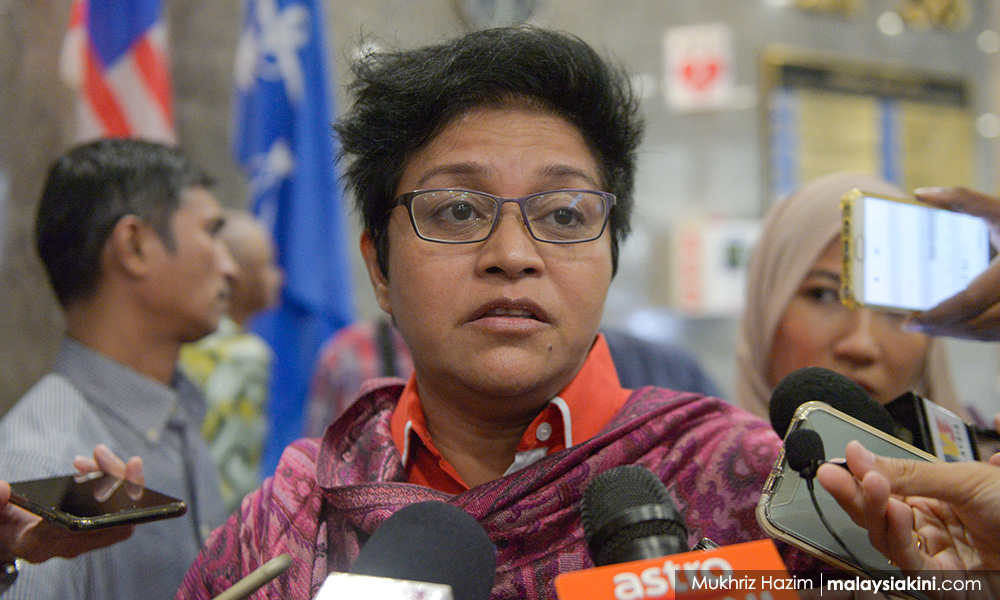Malaysia finds itself in an interesting position this Human Rights Day. With a fresh cabinet of both new and familiar faces, the administration now has the unenviable task of addressing cracks in a system long left unattended.
But precisely because the nation’s human rights record is relatively poor, the unity government can now rise to the occasion.
While political stability remains important – voter fatigue after the events of the Sheraton Move and the revolving door of premiers is no small thing – it is equally important that the government sets its sights on progressive and equitable legislative change.
All factions and parties in government must work together for the good of the people.
Malaysia’s tempestuous political arena and lack of continuity in policymaking direction created vacuums in some sectors and a trend towards the draconian in others.
Public trust – so difficult to win and yet so easily lost – took a dip, as evinced by the polarities in the recent election results. Now, with promises of stability to keep, the government must clean the house.
In the arena of human rights, the potential policy wins are clear: previously the nation arguably flew too close to the sun with attempts to ratify the International Convention on the Elimination of All Forms of Racial Discrimination being stopped in its tracks.
The unity government can and should now focus on the “easy” but effective and deeply meaningful wins: the first that comes to mind is allowing automatic citizenship for children born overseas to Malaysian women married to foreigners.
De facto Law Minister Azalina Othman Said – who previously filed a motion for a private member’s bill calling for a constitutional amendment on exactly this – has made it clear that this is a key area for her.

This heartening sentiment must become reality as hundreds of children continue to be left in limbo due to outdated and patriarchal bias in legislation.
A second dynamic and sorely-needed legislative change would be to decriminalise suicide. This decision, as stated by former health minister Khairy Jamaluddin in September, falls under the cabinet.
Khairy made it clear that while the cabinet could make the call it instead elected to ask that the Attorney-General’s Chambers conduct a study.
Given that the suicide rate increased in 2021, the solution is clearly to assist those who require support, not criminalise them.
Instituting a moratorium on this section of the Penal Code while working to decriminalise suicide is a simple way forward for the unity government; and will show sincerity in its pledges to bring about a more inclusive nation.
As it stands, the current law will ensure that those who need help and have attempted suicide do not feel safe in coming forward to access this assistance.
Removing it will heighten awareness regarding ableism in law and society and centre the need for mental health legislation. Without decriminalising suicide, the government’s plans for a National Suicide and Fatal Injury Registry (expected 2023) to inform suicide prevention programmes is scuttled from the outset.
Allow refugees to work
Finally, the new government could show its commitment to serving the most marginalised among us by allowing refugees to work, attend school and access basic healthcare.
Employment ideas and guidelines have been in the works since at least 2015, with the Human Resources Ministry exploring suitable sectors as recently as March this year.
Allowing refugees to work, study and be well will not serve as a pull factor: one becomes a refugee due to the push in one’s own home, not the ostensible allure of another nation.
The legal right to work will instead empower a disenfranchised community and allow them to make decisions regarding their personal movements and journeys without relying on international organisations.
It provides a layer of protection and allows them to earn a living, educate their children and avoid unscrupulous employers.

As it stands, refugees already work informally: formalising this will minimise the chances of debt bondage and modern-day slavery (a key concern for the domestic human rights agenda given Malaysia’s lowest-tier ranking in the Trafficking in Persons Report).
From an economic standpoint allowing refugees to work will contribute to the GDP and create new complementary jobs alongside citizens – although, of course, the chief benefit is providing a community with its deserved dignity.
This is by no means an exhaustive list of suggestions, and quite obviously does not touch upon the rights issues that are swept under the policymaking carpet by reason of ‘sensitivity’, ‘religious values’ or similar.
The fact that we are unable to stridently advocate for queer rights, interfaith freedoms or racial equality without risk to individual safety is not just a policy failure, but a rights violation in and of itself – one that the new government must address while it navigates discomfort across various voter bases.
But as we work toward this goal the nation's unity government can tackle the easier wins, bearing in mind that it is only the beginning.
As nations mark Human Rights Day, the unity government must set about the business of rights and recovery as soon and effectively as possible. - Mkini
TASHNY SUKUMARAN is a mask-wearing Senior Analyst with the Institute of Strategic and International Studies’ Social Policy & National Integration division. She can be reached at tashny@isis.org.my
The views expressed here are those of the author/contributor and do not necessarily represent the views of MMKtT.




No comments:
Post a Comment
Note: Only a member of this blog may post a comment.